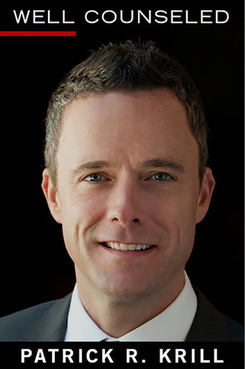For Firms Welcoming Summer Associates, It's Time to Think Outside the Bottle
The lawyers of tomorrow are increasingly aware of—and not OK with—the mental health and substance abuse risks that can come with life in the law.
May 04, 2018 at 01:43 PM
6 minute read
The original version of this story was published on Law.com
 Photo: Senyuk Mykola/Shutterstock.com
Photo: Senyuk Mykola/Shutterstock.com As far as tired clichés go, “work hard, play hard” is among the most exhausted. Despite the mantra's patently empty promise—that you can somehow have it all by just going full-throttle across every inch and moment of your life—its allure persists, especially among occupational maximalists like lawyers. Now, as law firms prepare to welcome their new classes of summer associates, outdated and uninspired thinking about the appeal of the “work hard, play hard” image is likely rearing its head once again.
Here's the common line of thought: “We want them to like us and have fun, but also to see we take our work very seriously. I know, we have to show them we can work hard and play hard!”
In the practical terms of a law firm setting, that means a lot of drinking-based events, and non-drinking-based events with plenty of alcohol still available. If you work in a firm, you know this is true. If you are alert to emerging trends, however, you should probably also know it's time to rethink your summer associate game.
The lawyers of tomorrow are increasingly aware of—and not OK with—the mental health and substance abuse risks that can come with life in the law. As recently as last fall, student leaders at 14 elite law schools around the country banded together to sign a pledge that they would seek to greatly improve the mental health and overall well-being of their student bodies, and to fight the stigma associated with seeking treatment. If that sounds revolutionary, that's because it is. And as someone whose day-to-day work is a deep-dive into behavioral health and well-being in the legal profession, I can tell you it is not a passing phase or flavor of the week.
In the words of Chris O'Brien, one of the student leaders who initiated that pledge:
More and more has come out in the last few years to show that the prevalence of mental health issues in law school and the legal profession is much higher than people originally knew, especially at big law firms where people work 60 to 80 hours a week. Many of these patterns develop in law school and are continued into the legal profession. We get into a pattern: high pressure, high stakes, anxiety, depression. In law school, we drink a lot, because we enjoy each others' company, and often we continue to drink in order to combat some of these issues, which is extremely unhealthy.
If that sounds like the thinking of a generation who will be drawn to firms who lavish them with the booziest events and best parties, you need to listen a little more closely.
 Citing a “mental health crisis” and the fact that misery in the legal profession is “seemingly ubiquitous,” students at Harvard Law School recently pushed the school to conduct a mental health survey to measure the well-being of the student body. What they found demonstrated a “grisly reality” that included truly significant levels of mental health distress and self-identified risk of suicide. In response, the student government offered several recommendations they would like to see the school implement, including hiring more therapists, providing training on how to spot distress in a colleague, and fostering deeper connections between faculty and students. This could, they say, “include more candid discussions about mental health struggles in the legal profession, or even the struggles of the faculty themselves.” Again, revolutionary. Suffice it to say, I doubt the students are hoping for these candid discussions about mental health struggles to take place in the default social settings of the legal profession—happy hours and cocktail receptions.
Citing a “mental health crisis” and the fact that misery in the legal profession is “seemingly ubiquitous,” students at Harvard Law School recently pushed the school to conduct a mental health survey to measure the well-being of the student body. What they found demonstrated a “grisly reality” that included truly significant levels of mental health distress and self-identified risk of suicide. In response, the student government offered several recommendations they would like to see the school implement, including hiring more therapists, providing training on how to spot distress in a colleague, and fostering deeper connections between faculty and students. This could, they say, “include more candid discussions about mental health struggles in the legal profession, or even the struggles of the faculty themselves.” Again, revolutionary. Suffice it to say, I doubt the students are hoping for these candid discussions about mental health struggles to take place in the default social settings of the legal profession—happy hours and cocktail receptions.
If finding alignment with the mindset of the next generation of lawyers isn't a compelling enough reason for firms to revamp their summer associate programs, then perhaps they should consider that forced cultural norms—such as regular alcohol consumption—also create a barrier to diversity and inclusion. For the roughly 30 percent of American adults who don't drink due to a variety of reasons, including religious or cultural values, health reasons, or because they are in recovery from a substance use disorder, feeling at home in the social environment of the legal profession is an unduly burdensome task.
As we all know, change is sometimes a difficult and frightening thing, especially when you are talking about cultural change and the unwinding of longstanding traditions. Historical examples of why we must move past the fear and uncertainty to achieve societal progress are too numerous to cite, and in the context of the legal profession, the same fears and rationale for moving past them are abundant. As the American Bar Association and other leaders and stakeholders across the profession continue to push for an increased prioritization of lawyer and law student well-being, it is critical that law firms recognize their important and unique role in that process, and to examine their cultures in search of areas ripe for improvement. Getting your summer associates drunk is clearly one such area, but staying stuck in old patterns has proven to be overwhelmingly seductive.
In my work to help law firms think strategically about improving well-being and reducing behavioral health risk, one of the most common questions I hear is, “But where do we even start?” For many firms, a summer associate program is an example of low-hanging fruit that makes a good target for change. To firm leaders, I would say that the students coming your way are acutely aware of the mental health challenges and unhealthy behaviors common to the legal industry. These students are not looking for firms to pretend the problems don't exist, they're looking for firms who are committed to doing something about them.
Patrick R. Krill is the founder of Krill Strategies, a behavioral health consulting firm focused exclusively on the legal industry. Go to www.prkrill.com for more information.
This content has been archived. It is available through our partners, LexisNexis® and Bloomberg Law.
To view this content, please continue to their sites.
Not a Lexis Subscriber?
Subscribe Now
Not a Bloomberg Law Subscriber?
Subscribe Now
NOT FOR REPRINT
© 2025 ALM Global, LLC, All Rights Reserved. Request academic re-use from www.copyright.com. All other uses, submit a request to [email protected]. For more information visit Asset & Logo Licensing.
You Might Like
View All
How a Paul Weiss Associate’s Career Took Off With Help From a Social Mobility Alliance
6 minute read

Trending Stories
- 1Critical Mass With Law.com’s Amanda Bronstad: LA Judge Orders Edison to Preserve Wildfire Evidence, Is Kline & Specter Fight With Thomas Bosworth Finally Over?
- 2What Businesses Need to Know About Anticipated FTC Leadership Changes
- 3Federal Court Considers Blurry Lines Between Artist's Consultant and Business Manager
- 4US Judge Cannon Blocks DOJ From Releasing Final Report in Trump Documents Probe
- 5White & Case KOs Claims Against Voltage Inc. in Solar Companies' Trade Dispute
Who Got The Work
J. Brugh Lower of Gibbons has entered an appearance for industrial equipment supplier Devco Corporation in a pending trademark infringement lawsuit. The suit, accusing the defendant of selling knock-off Graco products, was filed Dec. 18 in New Jersey District Court by Rivkin Radler on behalf of Graco Inc. and Graco Minnesota. The case, assigned to U.S. District Judge Zahid N. Quraishi, is 3:24-cv-11294, Graco Inc. et al v. Devco Corporation.
Who Got The Work
Rebecca Maller-Stein and Kent A. Yalowitz of Arnold & Porter Kaye Scholer have entered their appearances for Hanaco Venture Capital and its executives, Lior Prosor and David Frankel, in a pending securities lawsuit. The action, filed on Dec. 24 in New York Southern District Court by Zell, Aron & Co. on behalf of Goldeneye Advisors, accuses the defendants of negligently and fraudulently managing the plaintiff's $1 million investment. The case, assigned to U.S. District Judge Vernon S. Broderick, is 1:24-cv-09918, Goldeneye Advisors, LLC v. Hanaco Venture Capital, Ltd. et al.
Who Got The Work
Attorneys from A&O Shearman has stepped in as defense counsel for Toronto-Dominion Bank and other defendants in a pending securities class action. The suit, filed Dec. 11 in New York Southern District Court by Bleichmar Fonti & Auld, accuses the defendants of concealing the bank's 'pervasive' deficiencies in regards to its compliance with the Bank Secrecy Act and the quality of its anti-money laundering controls. The case, assigned to U.S. District Judge Arun Subramanian, is 1:24-cv-09445, Gonzalez v. The Toronto-Dominion Bank et al.
Who Got The Work
Crown Castle International, a Pennsylvania company providing shared communications infrastructure, has turned to Luke D. Wolf of Gordon Rees Scully Mansukhani to fend off a pending breach-of-contract lawsuit. The court action, filed Nov. 25 in Michigan Eastern District Court by Hooper Hathaway PC on behalf of The Town Residences LLC, accuses Crown Castle of failing to transfer approximately $30,000 in utility payments from T-Mobile in breach of a roof-top lease and assignment agreement. The case, assigned to U.S. District Judge Susan K. Declercq, is 2:24-cv-13131, The Town Residences LLC v. T-Mobile US, Inc. et al.
Who Got The Work
Wilfred P. Coronato and Daniel M. Schwartz of McCarter & English have stepped in as defense counsel to Electrolux Home Products Inc. in a pending product liability lawsuit. The court action, filed Nov. 26 in New York Eastern District Court by Poulos Lopiccolo PC and Nagel Rice LLP on behalf of David Stern, alleges that the defendant's refrigerators’ drawers and shelving repeatedly break and fall apart within months after purchase. The case, assigned to U.S. District Judge Joan M. Azrack, is 2:24-cv-08204, Stern v. Electrolux Home Products, Inc.
Featured Firms
Law Offices of Gary Martin Hays & Associates, P.C.
(470) 294-1674
Law Offices of Mark E. Salomone
(857) 444-6468
Smith & Hassler
(713) 739-1250










